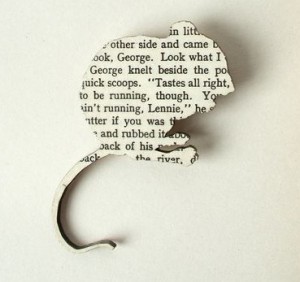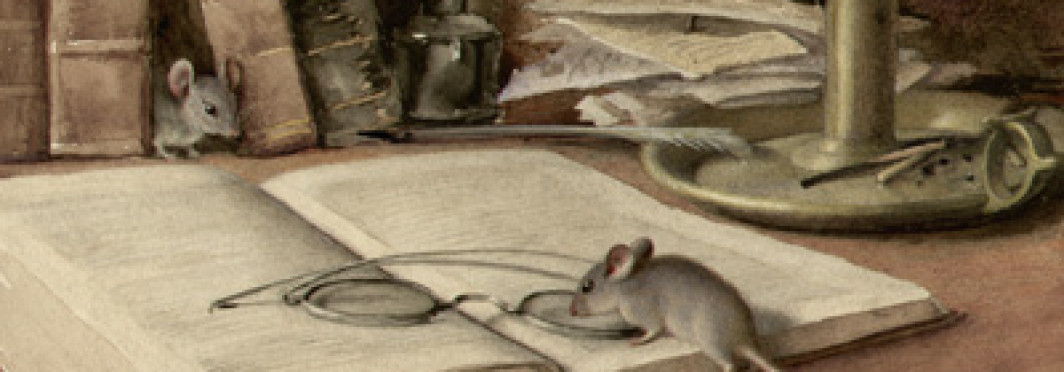For weeks I’d been trying to ignore the occasional strand of raw spaghetti that appeared by the garage door. I knew that meant that all the mouse poop I’d vacuumed up from the garage wasn’t just ancient history—I had a problem that was alive and well. I just couldn’t bring myself to deal with it until Saturday evening when I reached for the crackers at the back of the shelf in the garage. The realization that a mouse had nibbled its way through the cardboard and plastic alerted me that I had to find out what else had been compromised.
Battle Mouse began Sunday morning at 6:30 a.m. My reconnaissance mission revealed that my mouse situation was much worse than anticipated.
 I began by taking cans and bottles to the kitchen to be washed and/or sanitized. Pristine cracker boxes were wiped down with a sponge loaded with an antibacterial cleaner. Compromised cracker boxes were tossed. Ditto for the pasta and beans, and anything else in a breachable container.
I began by taking cans and bottles to the kitchen to be washed and/or sanitized. Pristine cracker boxes were wiped down with a sponge loaded with an antibacterial cleaner. Compromised cracker boxes were tossed. Ditto for the pasta and beans, and anything else in a breachable container.
An hour or two after embarking on what would turn into an 11-hour, non-stop mission, I peered into a box of protein bars and came nose to nose with the enemy. I’ll confess that those little bright eyes and twitching nose startled me pretty thoroughly. Luckily, I had the presence of mind to race outside and dump both box and mouse in the garbage can. I’m hoping that the dump proves to be a happy relocation.
I’m afraid that his family members haven’t fared so well. I hated setting those traps, and felt both relieved and sad when I caught four overnight (with only three traps—I’m still not sure how that happened) and another less than an hour after I re-set the traps. But I’m getting ahead of my story.
The hours passed. I had gotten rid of all the mouse-infested food and sanitized the now empty shelves in the garage as well as the garage floor. Now I had to eliminate the source of the problem. I’m not just talking about the mice. Anything not in tin or glass had to move into the house, which meant that I would need to reorganize the pantry and move some of that content to the garage. Eventually, I would wind up moving the china into the garage as well. That’s just the way I roll. Go big or go home.
Wait, I was at home. (Okay, so I’m still a bit punchy this morning, but I think that’s funny.)
So what does all this have to do with manuscripts and writing?
Everything.
All too often, we writers know deep down that there’s a problem with the manuscript we’re writing or editing. But we just don’t want to face it. So we convince ourselves that it’s not really an issue or that at least it’s not a big or an important issue. And that may be the case at first. But by the time we get around to dealing with the problem we’ve tried so hard to ignore, it’s often become so large that we have to completely tear apart, reorganize and revise all the writing we’ve done.
In the end, if we work hard enough and smart enough, we wind up with a clean manuscript that delivers. But there are sure easier ways to get there.
So let’s make a pact to no longer ignore that little internal voice that signals a concern. Here’s to dealing with potential problems as soon as we even suspect they might exist.



Sorry, comments are closed for this post.